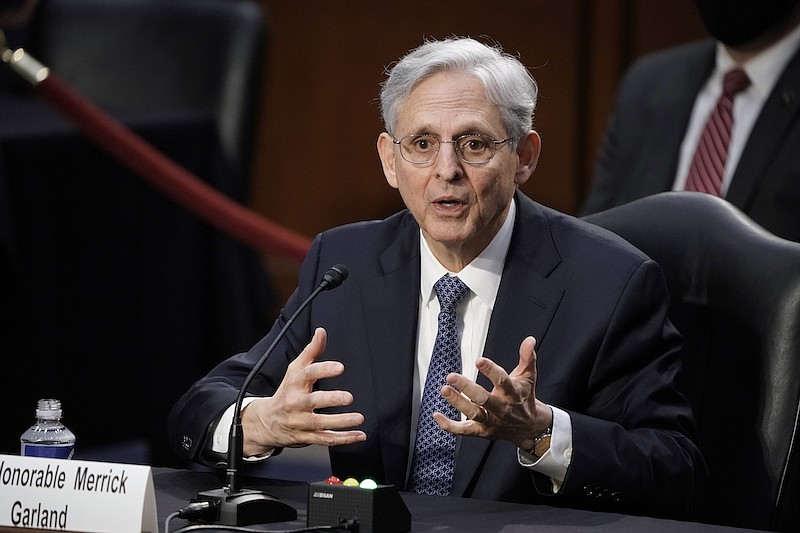After four years of the Trump administration running roughshod over apolitical law enforcement at the Department of Justice, there is an understandable desire to strengthen constraints on the presidency through legislation or regulation. A former White House counsel and a former assistant attorney general, Bob Bauer and Jack Goldsmith, have written a whole book - "After Trump" - proposing guardrails to put into place.
Merrick Garland, who may be confirmed as the nation's next attorney general as early as this week, signaled a different approach during his confirmation hearings. Instead of calling for a formalized, legislated code of conduct governing the relationship between the White House and the Justice Department, Garland invoked the norms that were taken for granted before Trump decided he had an "absolute right to do what I want to do with the Justice Department."
Garland, of course, imbibed the department's norms in his years as federal prosecutor and a deputy assistant attorney general. Last Monday, he explained them as "policies that protect the independence of the department from partisan influence in law-enforcement investigations; that strictly regulate communications with the White House; ... that respect the professionalism of DOJ employees; and that set out the principles of federal prosecution to guide the exercise of prosecutorial discretion."
He clearly believes it should be enough to pledge fealty again to these principles, without a need to set the norms in stone. He conveyed steely independence in the hearings: "I do not plan to be interfered with by anyone," he said.
And yet Garland's traditional approach to the Justice Department's role isn't a guarantee against the next wannabe tyrant who finds a way into the White House. Nonetheless, Garland's way is the smart way to revive the department today, and in the end it is probably the only way to do it.
For starters, the idea that we could legislate a way to prevent Trump's manifold corruptions is chimerical. Putting a principle like the necessary independence of the Justice Department into statutory language would be notoriously difficult and an invitation to unintended consequences.
I think Garland may also think, rightly, that it is odd to look to the Department of Justice, which represents the executive branch, to champion legally binding reductions of executive power. In administrations of both parties, the Justice Department has seen its role as protecting an expansive view of executive power while employing prosecutorial discretion to erect voluntary guardrails when needed.
Garland's reliance on norms fits an irreducible reality. Our government relies on the character of the people we put in positions of power. An attorney general who can't or won't stand up to improper political pressure on the strength of his own honor and integrity won't be much strengthened by a new law in the U.S. code.
Garland promised this week that on his watch, the Justice Department "will be under my protection for the purpose of preventing any kind of partisan or other improper motive in making any kind of investigation or prosecution."
"That's my vow," he said.
With Garland, and in the immediate aftermath of the Trump catastrophe, that's good enough.
The Los Angeles Times
